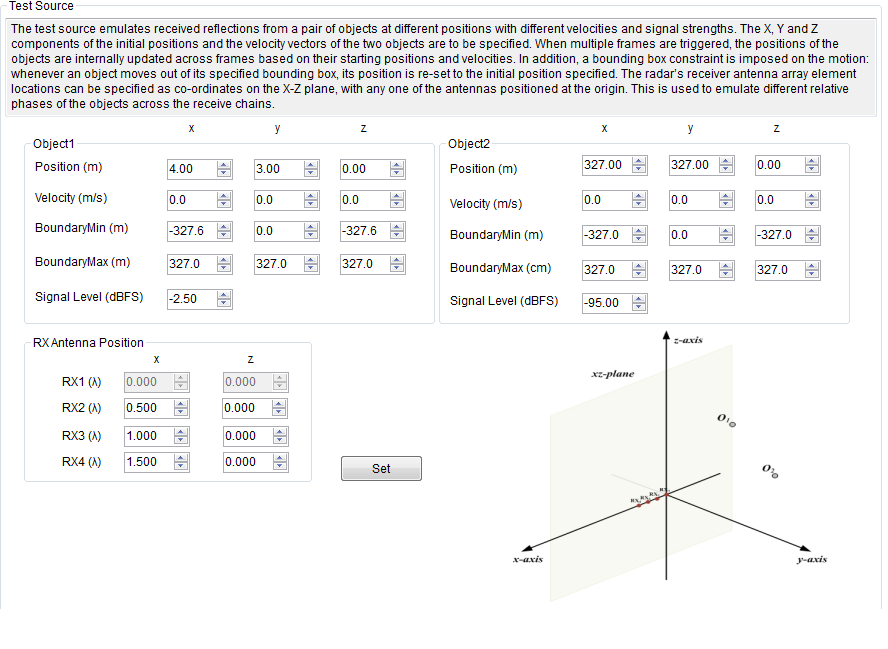Hi,
can i use the fix test pattern mode with CSI2 data path?my processor is Zynq UltraScale plus.
In normal mode i can receive data pkg and CP data is correct,Chirp Num is accurately increasing.
in order to verify the data i would like to use test pattern sending fixed data,but No data received,it seems that 1243 does not send any data pkg.
where did i wrong?
I use the following setting:
/** @fn int Link_testPatternConfig(unsigned char deviceMap)
*
* @brief Test Pattern configuration API.
*
* @param[in] deviceMap - Device Index
*
* @return int Success - 0, Failure - Error Code
*
* Test Pattern configuration API.
*/
int Link_testPatternConfig(unsigned char deviceMap)
{
int retVal = RL_RET_CODE_OK;
/*Test Pattern configuration*/
rltestPattern_t testPatternCfgArgs = {0};
testPatternCfgArgs.numTestPtrnPkts = 128; /* 128 packets */
testPatternCfgArgs.testPatGenCtrl = 0x1; /* Enable */
testPatternCfgArgs.testPatGenTime = 32; /* 100 Clocks (@200 MHZ) */
testPatternCfgArgs.testPatrnPktSize = 256; /* Packet Size */
testPatternCfgArgs.testPatRx0Icfg = 0xA;
testPatternCfgArgs.testPatRx1Icfg = 0xA;
testPatternCfgArgs.testPatRx2Icfg = 0xA;
testPatternCfgArgs.testPatRx3Icfg = 0xA;
testPatternCfgArgs.testPatRx0Qcfg = 0xB;
testPatternCfgArgs.testPatRx1Qcfg = 0xB;
testPatternCfgArgs.testPatRx2Qcfg = 0xB;
testPatternCfgArgs.testPatRx3Qcfg = 0xB;
retVal = rlDeviceSetTestPatternConfig(1U, &testPatternCfgArgs);
if (retVal != RL_RET_CODE_OK)
{
Link_log (Link_LogLevel_ERROR,"Test Pattern config failed for deviceMap %u with error code %d\n",
1, retVal);
return -1;
}
else
{
Link_log (Link_LogLevel_INFO,"Test Pattern config success for deviceMap %u\n", 1);
}
return retVal;
}



